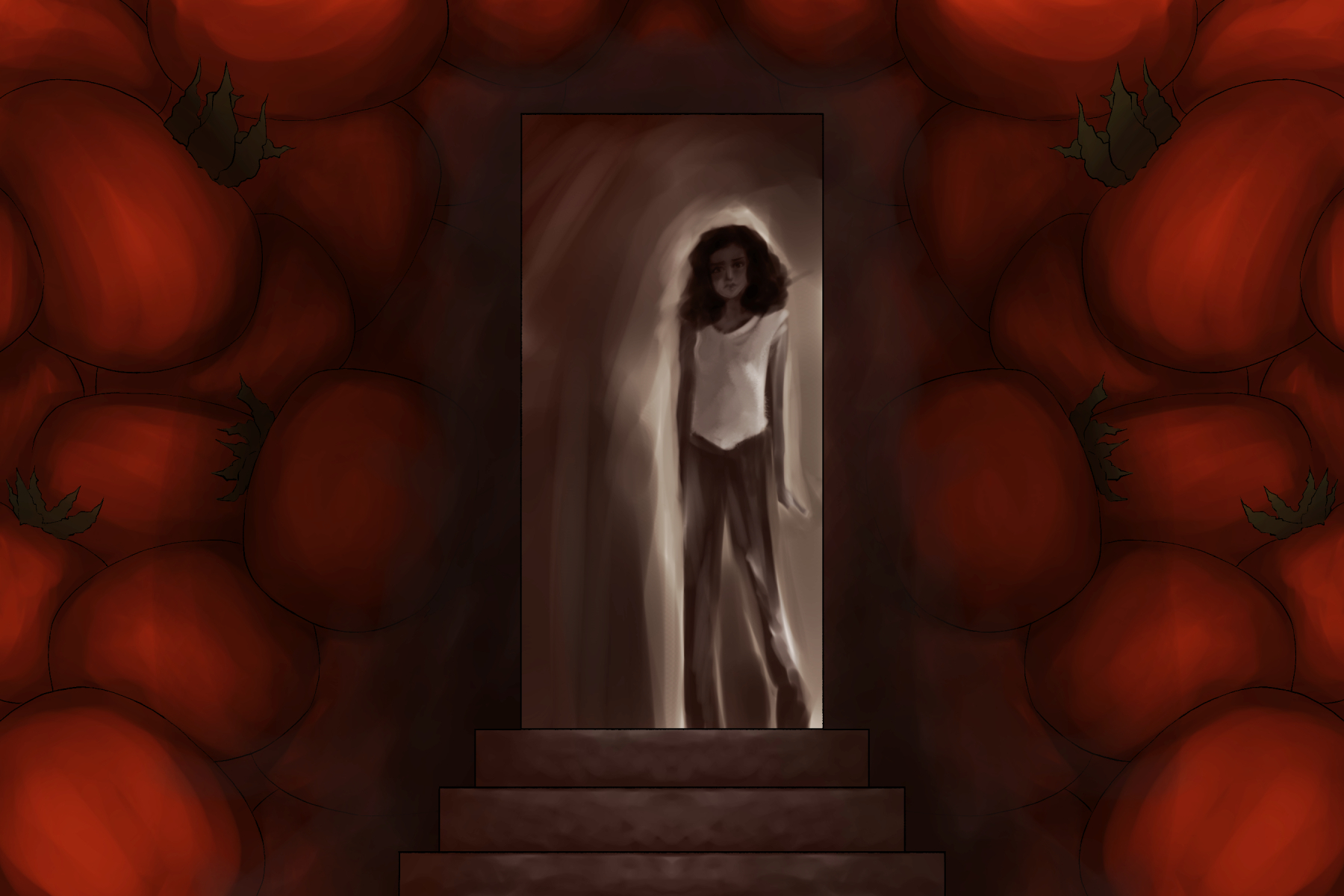Horror films are not renowned for boasting intelligent characters. On the contrary, most characters who populate this film genre are predisposed toward making poor decisions. Splitting off from friends to investigate an eerie sound is a frequent pastime for characters in our favorite scary movies; how else can screenwriters set up gruesome death scenes?
However, one can only scream “don’t go in there” so many times before the novelty grows stale. It’s rare nowadays to come across a horror film that exhibits shrewd, believable characters, which is why Zach Cregger’s 2022 thriller “Barbarian” is such a breath of fresh air.
“Barbarian” opens with a woman named Tess (Georgina Campbell) arriving at an Airbnb late at night only to discover that it’s been double-booked; a man named Keith (played by Bill Skarsgård, who portrayed Pennywise in 2017’s “It”) is already staying there. With no other options, Tess enters the house against her better judgment; something about Keith’s behavior makes her uneasy.
From there, the film maintains a rollercoaster plot that keeps viewers guessing throughout its runtime. Even the most intuitive cinema sleuths may find themselves taken aback by the plot twist about halfway through the film.
It’s best to go into this movie completely blind, so we recommend that you return to this article after viewing the film. Spoilers begin in the next paragraph. You’ve been warned.
Trigger Warning: This movie involves themes of sexual assault.
Tess
Tess quickly establishes herself as a protagonist with a sense of self-preservation. A far cry from many of the “scream queens” of the last century, Tess immediately behaves in a believable manner. She bluntly requests to see Keith’s reservation receipt and even sneaks a peek at his license when he isn’t looking. Yup, his name is really Keith, but she takes a picture of it anyways, just to be safe. Every excursion into the bathroom features a close-up shot of Tess locking the door, exemplifying her natural distrust of strangers.
These early scenes are brilliant for two separate reasons.
First off, they inform viewers of Tess’ intelligence and survival instincts. She will not be easy prey, and this alone makes her character more endearing.
Secondly, they establish Zach Cregger’s underlying thesis of this film — that women inhabit a world vastly different from that of their male counterparts. Cregger began writing the script for “Barbarian” after reading “The Gift of Fear” by Gavin de Becker, a self-help book that implores readers to trust their intuition and “gut instincts.” Women in particular are advised to heed subconscious warnings that arise during interactions with men.
“I just realized I occupy a completely different psychic landscape than most women do,” says Cregger.
When writing the opening scenes for “Barbarian,” Cregger included as many “red flags” as possible, making Keith appear intentionally sketchy. Sure, he’s polite, but he’s also nervous, overly accommodating and prone to bouts of rambling. He also insists that Tess stay at the house since there are no available hotels in town.
As a result, viewers are uncertain of Keith’s motives; his strange behavior can be interpreted as either suspicious or socially awkward. Tess is unsure what to make of him, and viewers share her unease. Cregger shows his audience the perpetual, subconscious sense of danger that marks the female experience.
The Basement
Eventually, Keith is revealed to be a pretty normal guy who only behaved oddly because he felt uncomfortable. Cregger’s “red flags” were actually “red herrings,” and the true horror of “Barbarian” is found in the house’s basement.
Tess accidentally locks herself down there while Keith is out of the house. It’s here that she discovers an eerie, makeshift tunnel hidden behind a wall panel that she believes might be an exit. Despite her reservations about entering an unlit tunnel, Tess is eager to escape the confines of the basement.
Instead, she discovers a brightly lit room with a dirty mattress, bucket and camera tripod. There’s a bloody handprint on the wall as well, leading Tess (and the audience) to sickening conclusions.
Upon Keith’s return, Tess demands that they leave immediately, but his desire to see the room for himself reveals something even more disturbing: The unlit tunnel extends even deeper underground. Keith suddenly disappears into the darkness, and his distant screams for help cause a reluctant Tess to follow him.
Deep underground, Tess discovers rusty gates and empty cages, large enough for a human. She also locates Keith, who is barely able to utter a warning before being brutally murdered by “Mother,” a gigantic, wretched creature that vaguely resembles a human.
Tonal Shift
A jarring scene change creates a purposeful tonal shift that lacerates the tension of the preceding scene. We now follow AJ, a carefree, narcissistic Hollywood actor. AJ, portrayed by Justin Long, is shown driving down the coast in his convertible when he is informed that an actress is accusing him of sexual assault.
Desperate for funds to pay his legal fees, AJ decides to sell his properties, including the Airbnb Tess and Keith rented. Upon visiting the house, AJ discovers the basement’s tunnel system.
However, as opposed to Tess’ fear, AJ exhibits indifference to the eerie corridor. He even begins measuring it in order to increase the house’s total square footage, thus improving its marketability. Here, Cregger is demonstrating the different world men inhabit as opposed to women; AJ never once fears for his safety. The only thing he fears is the sexual assault allegation, which he callously claims will ruin his reputation.
Mother
Like Tess, AJ soon encounters the frightening entity known as Mother. The second half of the film follows a pretty traditional horror movie route as AJ and Tess attempt to escape the creature.
Except Mother is not some inhuman entity, nor is she the barbarian referred to in the film’s title. The movie’s main villain is an unnamed serial killer who owned the house in the 1980s. A flashback reveals that he frequently kidnapped women, and, though the extent of his depravity is never explicitly shown, it is heavily implied that he impregnated some of them. Mother’s horrendous appearance is likely the result of inbreeding.
The lore is not exactly uplifting.
“Barbarian” is a fascinating film due to Cregger’s insistence on unveiling the “different psychic landscape” that women inhabit. He allows his audience to momentarily understand Tess’ fear and distrust of strangers, especially men. Ultimately, Mother is not even the biggest monster in the movie. “Violence against women” is arguably the main villain of the film. Both AJ and the serial killer demonstrate why Tess must err on the side of caution.
She is more than willing to listen to her intuition, a trait that Cregger appears to recommend. A world marked by constant peril requires constant vigilance. Tess’ refusal to ignore red flags is crucial to her survival.

















